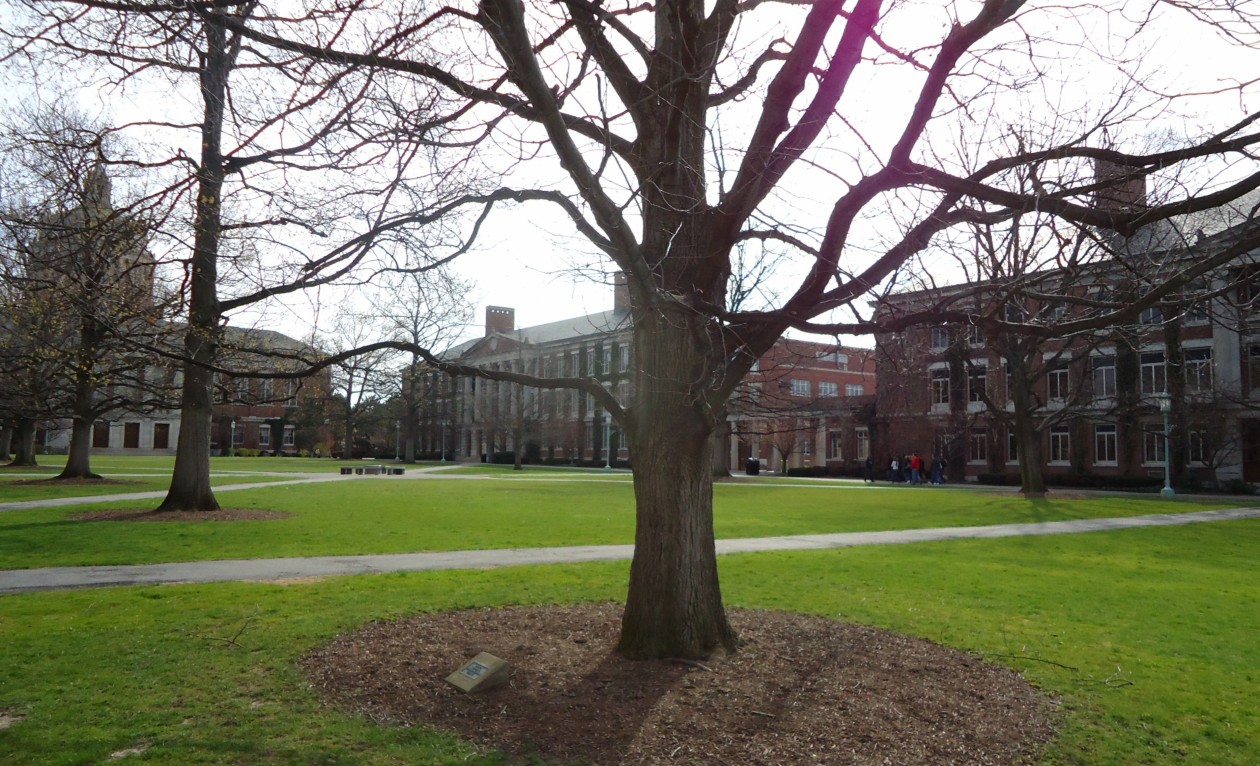For a long time, I’ve considered the drafting of the Constitution of the United States to be one of history’s greatest miracles. Just reading the Notes of Debates in the Federal Convention of 1787 reveals the true purview of the debate that characterized the Constitutional Convention. The diverse and often conflicting interests of the Convention’s delegates fueled seemingly irreparable disagreements. And miraculously, in the face of vociferous debate, one of the most influential and majestic documents the world had ever seen emerged.
As a lover of history, this made me appreciate the virtues of debate and civil exchange. Expectedly, then, one of the things I most looked forward to in college was interacting with people of different upbringings and viewpoints.
In my short time here at the University of Rochester, I’ve met many well-known thinkers. I have virtually unfettered access to some of the greatest minds in the world and I’ve gotten to meet notable people in my favorite fields. After one-and-a-half semesters here, I feel the need to discuss just a few of these occasions.
One of the people I was most excited to meet in our political science department was Professor David Primo, who I learned was a senior scholar at the Mercatus Center at George Mason University, particularly renowned for his research on government budget rules and campaign finance. (Most notably, Chief Justice Roberts, while delivering the majority opinion for the Supreme Court in Arizona Free Enterprise Club’s Freedom Club PAC v. Bennett, cited Professor Primo’s research on the matching funds provision of Arizona’s Clean Elections law.)
I enrolled in Professor Primo’s “Business and Politics” course for my first semester of college. On top of being one of our most popular faculty members, Professor Primo is director of the Politics and Markets Project, for which he assembles and moderates discussions between three distinguished panelists on various issues. During Meliora Weekend, Professor Primo hosted a discussion titled, “Can We Talk? Universities and the Future of Free Speech.” This was the first Politics and Markets Project event I attended, and luckily, I was able to speak with all of the panelists.
The second event that I attended, “Bankrupt Spending: Does Government Spending Threaten Your Future?,” contained an even greater treat. One of the panelists for this discussion was Dean Baker, a well-known economist and co-founder of the Center for Economic and Policy Research, one of the think-tanks that I most vehemently disagree with. Having been in his class and a frequent visitor during his office hours, Professor Primo reached out to me before the event, inviting me to a dinner with the panelists before the panel discussion. Unsurprisingly, I was excited.
Adding the cherry on top, I sat next to none other than Dean Baker. This was one of the most insightful experiences I have ever had. For about an hour, I was able to talk to Mr. Baker about various issues, and I cherished the chance to hear his thoughts in person. Needless to say, I enjoyed this panel discussion a great deal. Adding the second cherry on top of this event, however, was an email I received the next day from Professor Primo. Mr. Baker, it turns out, emailed my professor, and said that I, specifically, had “done my homework” and impressed him.
I am anticipating more exchanges yet to come. The University of Rochester Humanities Center has countless exciting projects operating under its umbrella. The most notable, in my view, is their Distinguished Visiting Humanist program, which brings eminent scholars and public intellectuals to Rochester for three or four days to engage in a variety of activities.
The Distinguished Visiting Humanist for the 2015-2016 academic year will be Professor Noam Chomsky, one of the most salient public intellectuals alive. Not only will Professor Chomsky give a public talk when he comes here in April, he will also hold a seminar with a small group of undergraduates. I will be taking part in that seminar, as Professor Chomsky will speak alongside Professor Aaron Hughes from the Department of Religion and Classics.
These are just a few of the opportunities made possible by the University of Rochester. On many occasions, a student or faculty member who was aware of my passions actively reached out to me about these opportunities. In my short time here, I have grown, whether by talking to a preeminent thinker or staying up until five in the morning (sorry, Mom!) talking to a friend who I know will become a US Congressperson.
I know I have matured intellectually, and I know that I have more to go. I am grateful for the many exchanges made possible by this institution, and I am proud to say that the University of Rochester remains dedicated to enabling the intellectual growth of its students.


